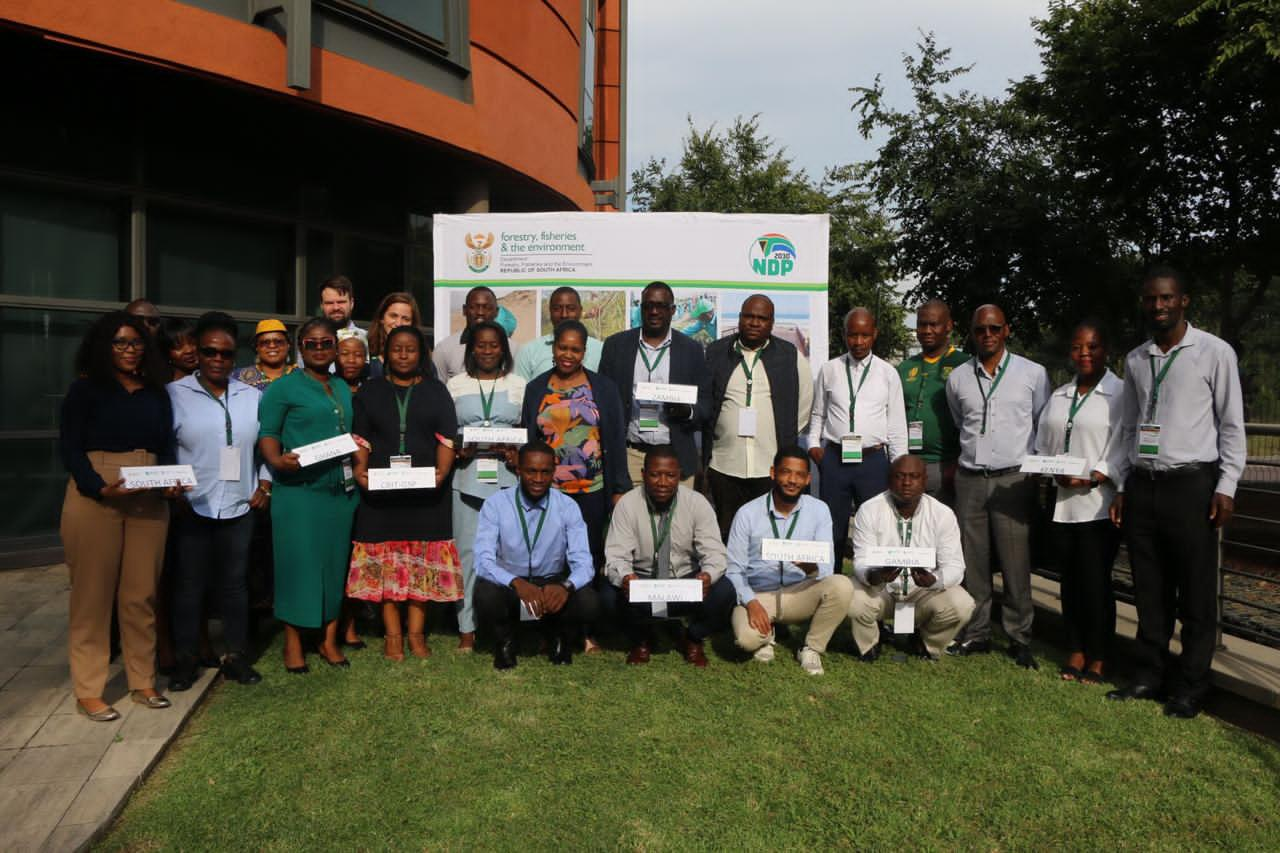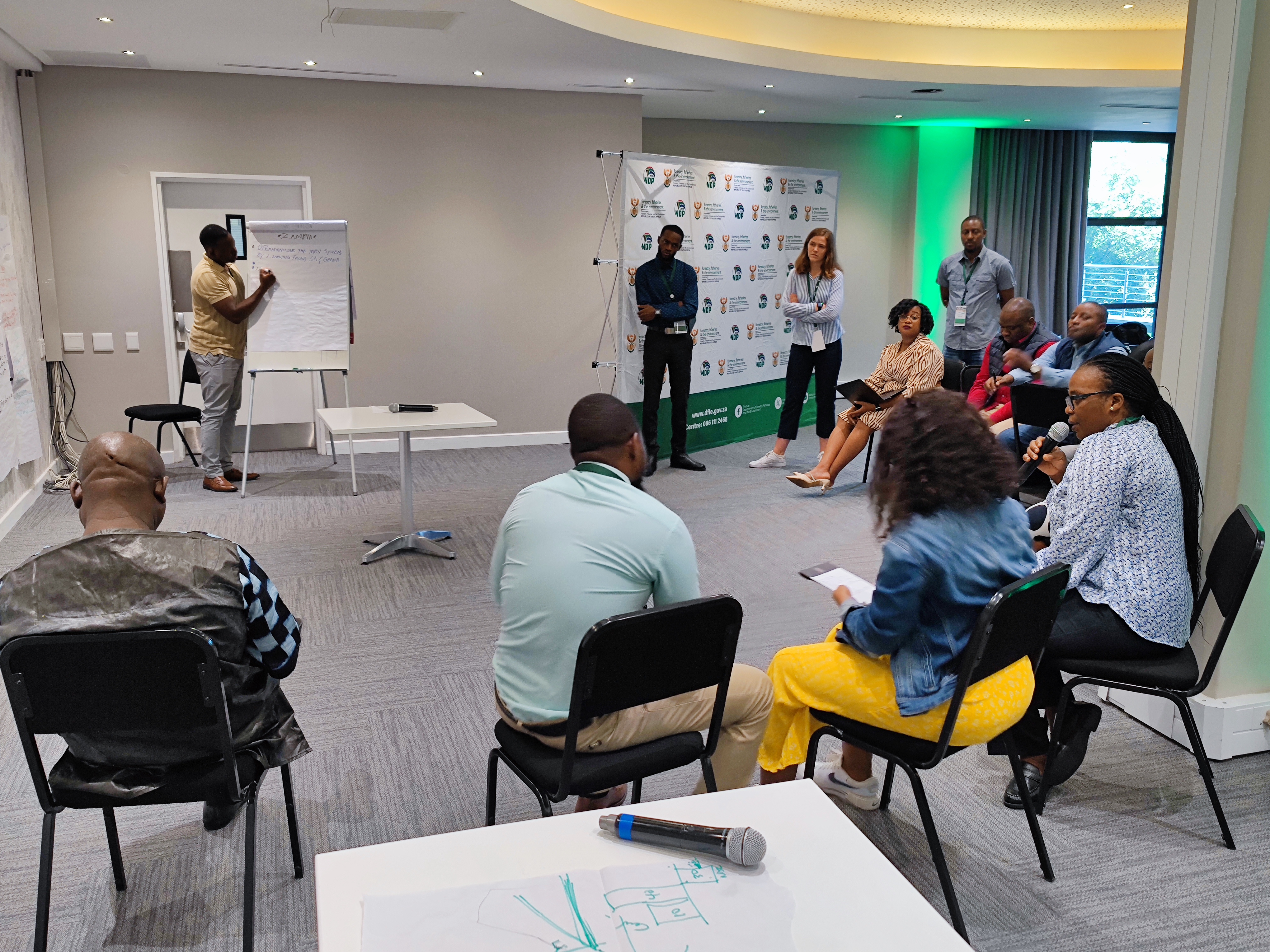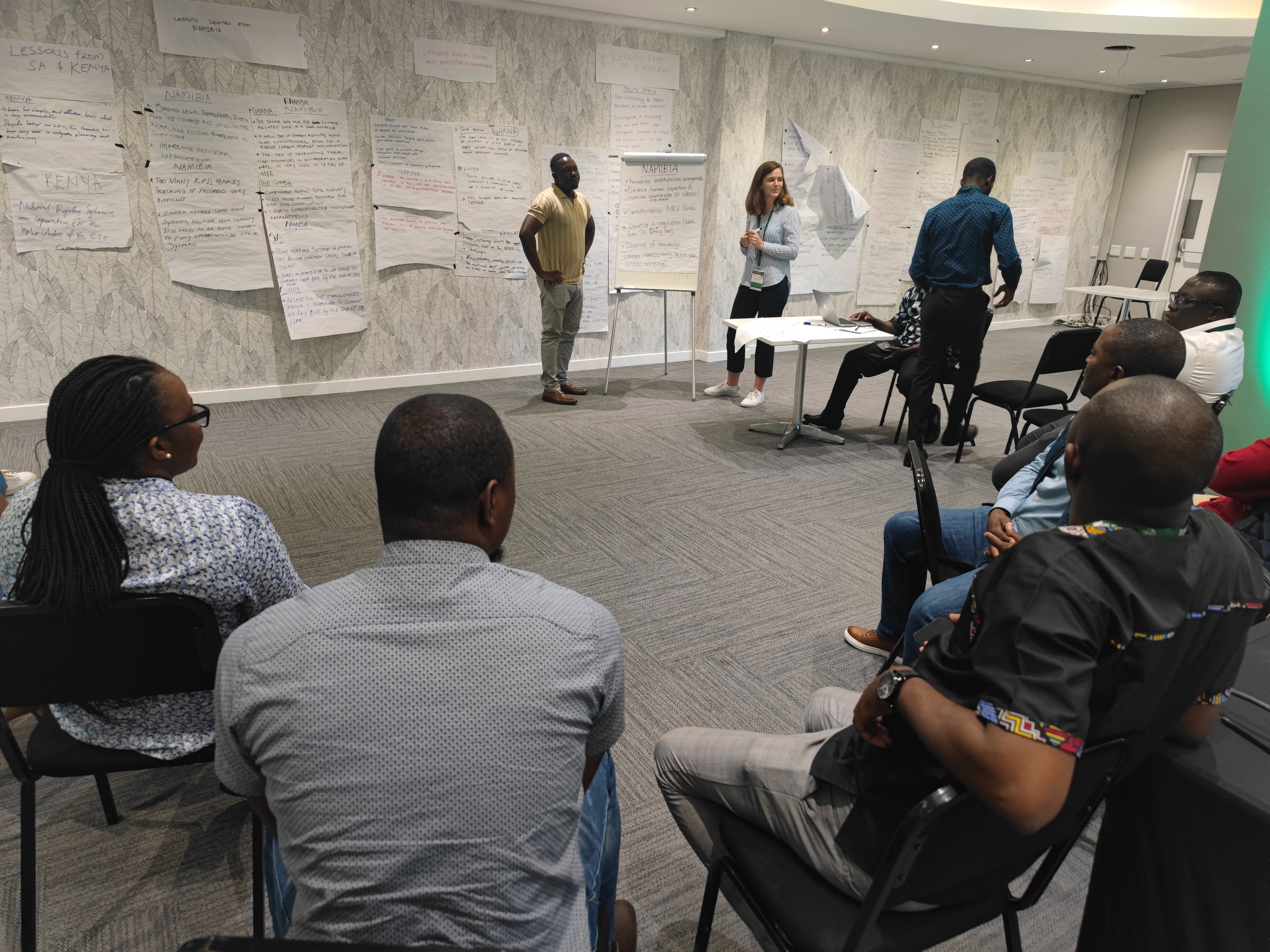


Background
With countries transitioning to the Enhanced Transparency Framework, building capacity and having a functional Monitoring and Evaluation Framework/system is imperative to enable consistent reporting through Biennial Transparency Reports under the enhanced Transparency Framework. As such, South Africa has made significant progress in implementing the M&E system with the potential for enhancements. As part of implementing the Capacity Building Initiative for Transparency project of South Africa, the Department of Forestry, Fisheries, and the Environment (DFFE) would like to learn and share with other countries who have developed or are in the process of developing and implementing the M&E systems.
DFFE invited six developing countries to South Africa for a week to participate in peer-to-peer learning. The countries include Kenya, Namibia, Malawi, Ghana, Gambia, and Zambia.
The peer-to-peer learning workshop will contribute to developing countries’ capacities in preparation for reporting to the UNFCCC under the ETF. South Africa will also benefit from learning from other countries as it updates and creates further climate change monitoring and evaluation tools and aligns them to the new tools under the ETF inclusive of the following, amongst other things:
- Indicators development and tracking.
- Risk profiling.
- Information systems.
- Tracking interventions spatially.
- Reporting of adaptation efforts, etc.
OBJECTIVES
The objectives of the workshop are, among others to:
- Share knowledge and experience on climate change adaptation and mitigation planning and implementation, climate change monitoring, reporting, and verification.
- Demonstrate advantages of functional monitoring and evaluation systems for climate change in informing domestic policy development and updating on climate change.
- Encourage gender mainstreaming in climate change development, implementation, and reporting.